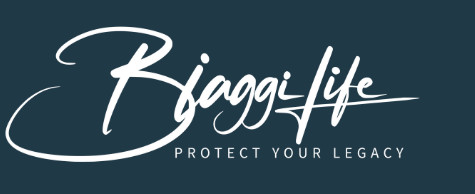What Are Life Settlements and How Do They Work?

How to Sell Your Life Insurance Policy: A Guide to Life Settlements
This blog is the written version of Biaggi Life's YouTube video, which you can watch
here. It covers everything you need to know about life settlements.
Life settlements, an option that many people aren't aware of when it comes to managing their life insurance policies.
Whether you're considering selling your policy or just want to learn more about this financial tool, this guide will walk you through the essentials.
What Is a Life Settlement?
A life settlement is the sale of an existing life insurance policy to a third party. When policyholders no longer need or can’t afford their policy, they can sell it to get a lump sum of cash.
People sell life insurance policies for various reasons. Maybe their kids are grown, they’re no longer married, or the premiums have become too expensive. Instead of letting the policy lapse and losing all the money they’ve paid into it, they can choose to sell it.
The buyer, often an investment company, takes over the policy. They continue to pay the premiums and eventually collect the death benefit when the original policyholder passes away. This option allows policyholders to recoup some of the money they’ve paid into the policy over the years.
How Do I Sell My Life Insurance Policy?
Selling a life insurance policy on your own can be challenging. When you approach a company that buys policies directly, they’ll typically offer the lowest amount possible. These companies are experts—they buy policies all the time and know how to get the best deal for themselves. As the policyholder, you likely have no experience in selling a policy, so it’s tough to know if you’re getting a fair price.
There are two main options for selling your policy:
Go directly to a buyer – This is where you handle everything on your own. You negotiate with the company buying your policy, but it can be difficult since they hold all the knowledge.
Work with a life settlement broker – A broker represents you and works to get you the best price. They have experience in the industry and can negotiate on your behalf, ensuring you don’t accept a low offer. Using a broker can make the process smoother and more profitable.
Working with a broker can give you a better experience and feel confident that you’re getting the best value for your policy.
Are Life Settlement Brokers Different From Life Insurance Agents?
Yes, life settlement brokers are different from life insurance agents. While both work with life insurance, a life settlement broker needs a special license to conduct life settlements.
Life insurance agents help you purchase policies, while life settlement brokers help you sell them. Their job is to represent you and find buyers who are willing to pay the highest price for your life insurance policy.
It’s important to note that not all life insurance agents are equipped to handle life settlements. So, if you’re thinking about selling your policy, you’ll want to make sure you’re working with a licensed life settlement broker who understands the process and can get you the best deal.
Can You Sell Both Term and Permanent Life Insurance Policies?
When it comes to life settlements, most companies prefer to buy permanent life insurance policies. This is because permanent policies, like whole life or universal life insurance, are designed to last a lifetime and often have a cash value component, making them more attractive to buyers.
That doesn’t mean you can’t sell a term life insurance policy. Some life settlement companies will buy term policies, but they usually convert them to permanent policies first. Converting a term policy depends on the rules set by the insurance company. If you're looking to sell a term policy, it’s important to make sure it meets the requirements for conversion, or the buyer may not be interested.
In short, while permanent policies are easier to sell, it’s still possible to sell a term policy if it can be converted.
Why Would a Company Want to Buy My Life Insurance Policy?
Companies buy life insurance policies because they see it as a good investment. Here's the key: most life insurance policies don't end up paying a death benefit. In fact, about 85% of life insurance policies never pay out because the policyholder either lets it lapse or cancels it. This allows life insurance companies to price policies relatively low compared to the payout.
Investment companies know this. They buy life insurance policies at a fraction of the potential payout and continue paying the premiums. When the policyholder passes away, the company collects the full death benefit.
For the company, it’s a calculated risk. They assess the policyholder's life expectancy and use that to estimate how long they’ll need to pay premiums before receiving the payout. This makes it a worthwhile investment for them, as they typically end up with more than they paid for the policy.
Is There an Age Requirement to Sell a Life Insurance Policy?
The age at which you can sell your life insurance policy largely depends on your health. Typically, life settlement companies are more interested in purchasing policies from older individuals, especially those with certain health conditions, as this shortens life expectancy and increases the likelihood of a payout sooner.
Here’s a general breakdown:
- If you’re in poor health: You can potentially sell your policy starting at age 60.
- If you’re in good health: Life settlement companies are usually interested in policies for individuals 75 years or older.
- If you’re 80 or older: Regardless of your health, life settlement companies are usually interested in buying your policy because your life expectancy is shorter.
Life settlement companies use sophisticated methods to estimate your life expectancy, sometimes down to the year. They assess your health and predict how many years you’re likely to live, allowing them to calculate the risk and potential return on purchasing your policy.
What Are the Benefits of Selling My Life Insurance Policy?
Selling your life insurance policy through a life settlement can provide significant financial benefits, especially if you no longer need the policy or can’t afford the premiums. Here are some key advantages:
- Recoup some of the money you've invested – If you let your policy lapse, especially in the case of a term policy, you might lose all the premiums you've paid. A life settlement allows you to recover some of that money instead of walking away with nothing.
- Get a lump sum payment – Selling your policy gives you immediate access to cash, which can be helpful for medical bills, retirement expenses, or other financial needs.
- Avoid ongoing premiums – Once you sell your policy, you’re no longer responsible for paying premiums. The buyer takes over the policy and its future costs, giving you more financial freedom.
- An option for policies with little to no cash value – Even if your policy has a low cash value, a life settlement might offer you a better return than surrendering the policy.
For many policyholders, a life settlement is an unexpected but helpful financial tool, especially when life circumstances change, and the original purpose of the policy no longer applies.
How Do Life Settlement Companies Determine the Value of My Policy?
Life settlement companies are highly skilled at determining the value of a life insurance policy. They base their calculations on several factors, the most important being your age, health condition, and the type of policy you hold.
Here’s how they generally evaluate the value:
- Age and Life Expectancy – The older you are, or the more health issues you have, the more valuable your policy becomes to a life settlement company. This is because they anticipate a shorter time before they receive the death benefit.
- Type of Policy – Permanent policies, such as whole or universal life insurance, are usually more attractive to buyers. Term policies can also be sold, but they’re typically converted to permanent policies by the buyer, which may influence the price offered.
- Policy Size and Premiums – Larger policies with higher death benefits are generally more valuable. However, the cost of premiums also plays a role. If your premiums are high, it may reduce the amount a buyer is willing to offer because they’ll be responsible for paying them.
- Cash Value – If your policy has built up a significant cash value, this can also be a factor in how much you can sell it for, although it’s not the only consideration.
Life settlement companies use these factors to predict how long they’ll need to pay premiums before collecting the death benefit, helping them offer a price that makes sense for both parties.
Conclusion
A life settlement can be a smart option if you no longer need or can’t afford your life insurance policy. Instead of letting it lapse, selling your policy could allow you to recoup some of the money you’ve invested over the years. Whether it’s due to changes in your family, financial situation, or simply no longer needing the coverage, a life settlement provides a way to access immediate cash without the burden of ongoing premiums.
If you’re considering selling your life insurance policy and want a partner who will be honest and straightforward, consider working with Biaggi Life.
Trust Biaggi Life to guide you through the life settlement process, offering you the clarity and support you deserve. Let us help you make the most of your life insurance and secure the best possible outcome for you and your family.




